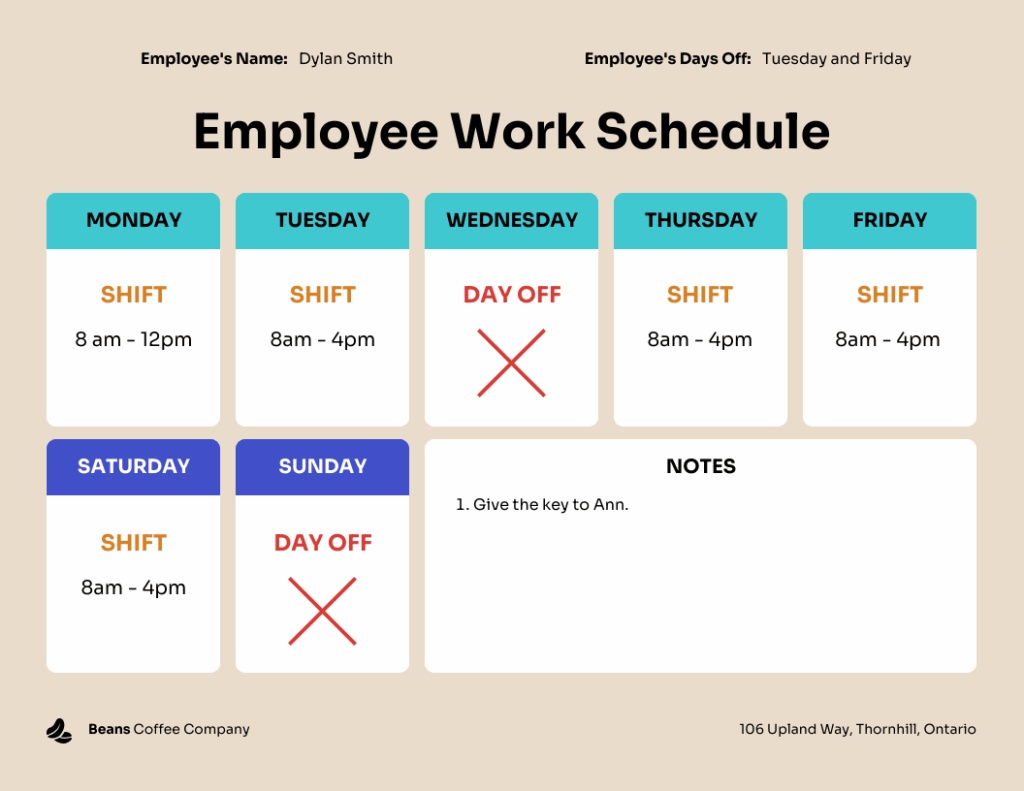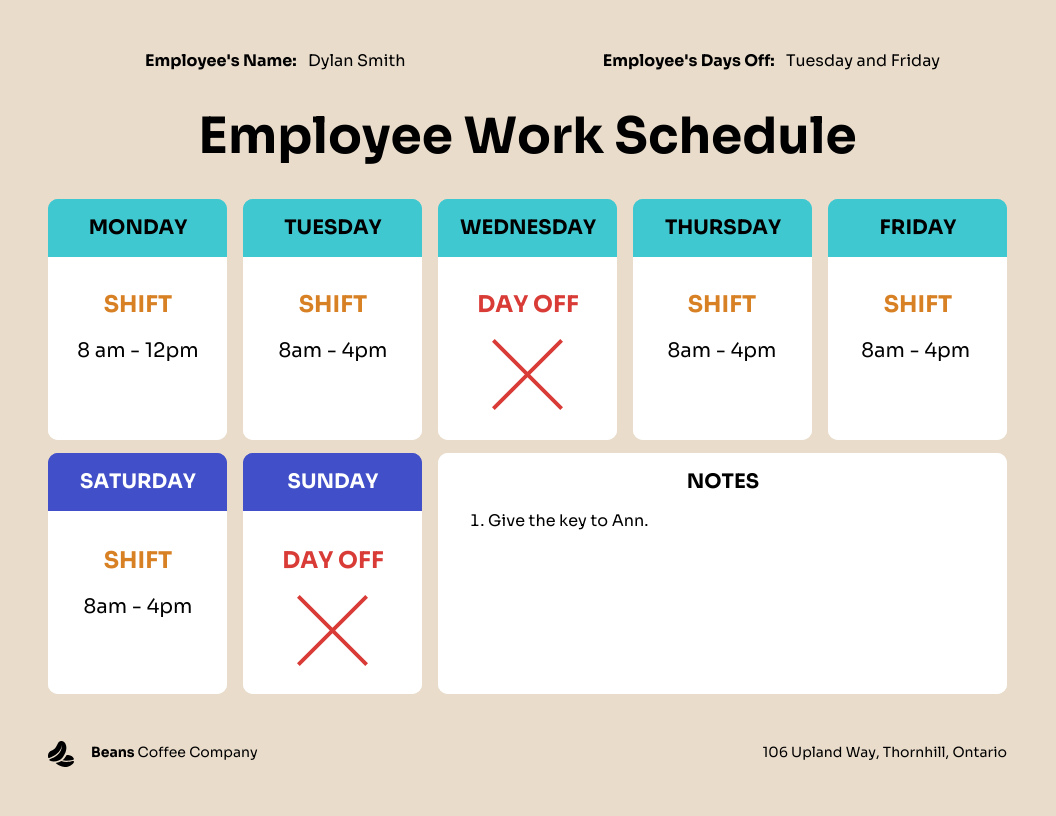
Maximizing Your Wellbeing: A Comprehensive Guide to Days Off
In today’s fast-paced world, the importance of taking days off cannot be overstated. Whether you’re a seasoned professional, a dedicated student, or someone managing a busy household, understanding how to effectively utilize your days off is crucial for maintaining both your physical and mental wellbeing. This guide explores the multifaceted benefits of taking regular days off, provides practical strategies for making the most of your time away from work or studies, and addresses common challenges associated with disconnecting.
The Crucial Benefits of Taking Days Off
The advantages of incorporating regular days off into your routine extend far beyond simply relaxing. These periods of rest and rejuvenation play a vital role in various aspects of your life:
- Reduced Stress and Burnout: Consistently working without breaks can lead to chronic stress and eventual burnout. Days off provide an opportunity to de-stress, recharge, and prevent the debilitating effects of overwork.
- Improved Mental Health: Time away from work allows your mind to unwind, reducing anxiety and improving your overall mood. Engaging in enjoyable activities during your days off can boost your sense of happiness and fulfillment.
- Enhanced Physical Health: Stress can manifest in physical ailments. Days off allow your body to recover, reducing the risk of stress-related illnesses such as headaches, muscle tension, and digestive problems.
- Increased Productivity and Creativity: Ironically, taking time off can actually boost your productivity. When you return to work after a period of rest, you’re likely to feel more focused, energized, and creative.
- Strengthened Relationships: Days off provide valuable time to connect with loved ones, nurture relationships, and create lasting memories. Quality time spent with family and friends can significantly improve your overall sense of wellbeing.
- Opportunity for Personal Growth: Use your days off to pursue hobbies, learn new skills, or engage in activities that promote personal growth. This can lead to a greater sense of purpose and fulfillment in life.
Planning Your Perfect Days Off
While spontaneity can be enjoyable, planning your days off can ensure you make the most of your time. Consider these strategies:
- Schedule in Advance: Treat your days off as important appointments and schedule them in advance. This will help you prioritize them and avoid the temptation to work.
- Set Realistic Expectations: Don’t try to cram too much into your days off. Aim for a balance between relaxation and activity.
- Unplug from Technology: Disconnect from work-related emails, social media, and other digital distractions. This will allow you to fully relax and recharge.
- Engage in Activities You Enjoy: Fill your days off with activities that bring you joy and relaxation. This could include reading, spending time in nature, pursuing hobbies, or socializing with friends.
- Prioritize Self-Care: Use your days off to focus on your physical and mental wellbeing. This could include exercising, practicing mindfulness, getting a massage, or simply taking a long bath.
- Explore Your Surroundings: Use your days off to explore your local area. Visit museums, parks, or historical sites. This can be a great way to learn something new and broaden your horizons.
Overcoming Challenges to Taking Days Off
Despite the numerous benefits, many people struggle to take regular days off. Common challenges include:
- Guilt and Pressure: Feeling guilty about taking time off or feeling pressured to work can prevent you from disconnecting.
- Workload Concerns: Worrying about falling behind on work or leaving tasks unfinished can make it difficult to relax.
- Financial Constraints: Concerns about lost income or the cost of activities can limit your ability to take days off.
- Lack of Support: Feeling unsupported by your employer or colleagues can make it challenging to prioritize days off.
To overcome these challenges, consider the following:
- Communicate Your Needs: Talk to your employer or colleagues about the importance of taking days off and how it benefits your overall productivity.
- Plan Ahead: Prepare for your days off by completing essential tasks and delegating responsibilities where possible.
- Set Boundaries: Clearly communicate your availability during your days off and avoid checking work-related emails or answering phone calls.
- Focus on the Long-Term Benefits: Remind yourself that taking days off is an investment in your long-term health, wellbeing, and productivity.
- Find Affordable Activities: There are many free or low-cost activities you can enjoy during your days off, such as hiking, reading, or spending time with friends.
The Psychology Behind Rest and Recovery
Understanding the psychological principles behind rest and recovery can further enhance the effectiveness of your days off. Concepts such as the Yerkes-Dodson Law, which suggests that performance increases with physiological or mental arousal, but only up to a point, highlight the importance of balancing work with rest. Too much stress or stimulation can lead to a decline in performance, making days off essential for maintaining optimal cognitive function. [See also: The Science of Burnout]
Mindfulness and meditation practices are also beneficial during days off. These techniques help to reduce stress, improve focus, and promote a sense of calm. Engaging in mindful activities allows you to fully appreciate the present moment and disconnect from the worries and anxieties of daily life.
Practical Tips for Unwinding on Your Days Off
Here are some practical tips to help you unwind and make the most of your days off:
- Create a Relaxing Environment: Set the mood by dimming the lights, lighting candles, or playing soothing music.
- Engage in Gentle Exercise: Activities like yoga, tai chi, or a leisurely walk can help to release tension and improve your mood.
- Read a Book: Escape into a good book and immerse yourself in a different world.
- Spend Time in Nature: Connect with nature by visiting a park, going for a hike, or simply sitting in your garden.
- Practice a Hobby: Engage in a hobby that you enjoy, such as painting, knitting, or playing a musical instrument.
- Connect with Loved Ones: Spend quality time with family and friends, engaging in activities that you all enjoy.
- Cook a Delicious Meal: Prepare a healthy and delicious meal for yourself or your loved ones.
- Take a Nap: A short nap can help to improve your alertness and mood.
Integrating Days Off into a Sustainable Lifestyle
Ultimately, the goal is to integrate regular days off into a sustainable lifestyle. This involves making conscious choices to prioritize rest, relaxation, and self-care. It also requires setting realistic expectations, managing your workload effectively, and communicating your needs to others. By making days off a regular part of your routine, you can significantly improve your overall health, wellbeing, and quality of life. [See also: Work-Life Balance Strategies]
Furthermore, consider the cultural aspects of taking days off. In some societies, there is a strong emphasis on productivity and hard work, which can make it difficult to justify taking time off. However, it is important to recognize that rest and recovery are essential for maintaining long-term productivity and preventing burnout. By challenging these cultural norms and advocating for the importance of days off, you can help to create a more supportive and sustainable work environment. Regularly scheduled days off are vital.
In conclusion, taking regular days off is not a luxury but a necessity for maintaining your physical, mental, and emotional wellbeing. By planning your days off effectively, overcoming common challenges, and integrating rest and recovery into your lifestyle, you can unlock the numerous benefits of disconnecting and recharging. Remember to prioritize self-care, engage in activities you enjoy, and connect with loved ones. Make the most of your days off and invest in your long-term health and happiness. Taking adequate days off is crucial.

